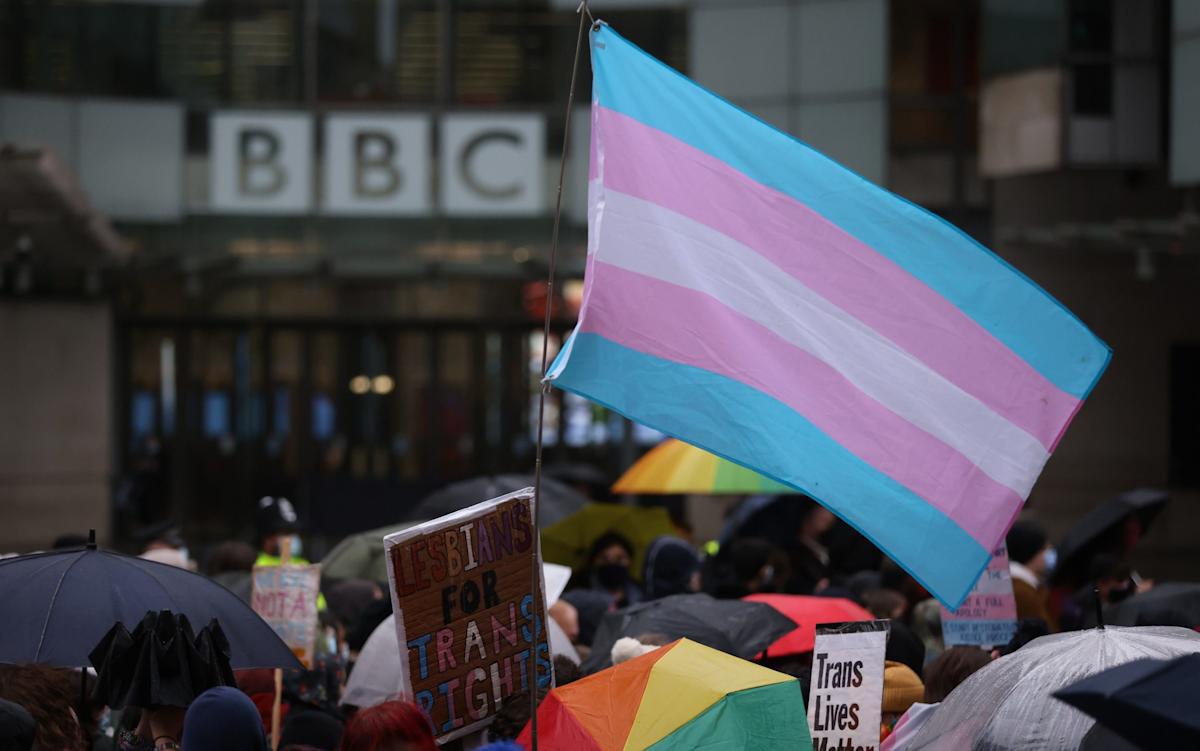By Daniel Martin
The BBC has admitted it is still letting biological men use women’s lavatories.
In response to a Freedom of Information (FoI) request, the corporation said it would only change its policies once guidance from the Equality and Human Rights Commission (EHRC) is approved by the Government.
In the meantime, the BBC said “sanitary facilities vary” across its estate, which includes studios and offices across the country. Signs will not be changed until the guidance is approved this autumn.
The Supreme Court ruled in April that the word “sex” in the Equality Act refers to biological sex and not to a person’s gender identity.
It means that facilities such as lavatories, changing rooms and showers should be segregated by sex and gender.
The EHRC followed this up with interim guidance which confirmed that transwomen – biological males – should not be allowed in such women’s spaces.
And last month, Sir Keir Starmer said public bodies must implement the ruling “as soon as possible”.
However, the BBC said it would wait until the final guidance is published and signed off by the Government before taking any action.
‘The law is the law now’
Catherine Leng, advocacy lead at the gender-critical group Seen in Journalism, said: “We know that before the ruling, the BBC did not signpost facilities for women only by biological sex – in fact, it refused requests to do so – and they’ve done nothing since the Supreme Court judgment to change that.
“The BBC itself said the judgment gives clarity, so why is it dragging its feet on single-sex spaces?
“How can female journalists and other staff feel confident their employer will support them in being impartial when it won’t respect the law itself? The law is the law now, it doesn’t depend on EHRC guidance and the EHRC chair has made that clear.
“It needs to stop asking its diversity teams what to do and start asking lawyers.”
In its FoI request, Seen in Journalism asked: “Do all or any BBC buildings and workplaces in the UK have single-sex toilets, changing rooms and/or showers which are accessible only to members of one sex and not to trans-identified members of the opposite sex?”
The response was: “Sanitary facilities vary across the BBC property estate. We fully intend to comply with any new guidance once approved, while ensuring that we provide facilities that respect the needs and rights of all staff and visitors to our buildings.”
The BBC currently has self-contained facilities and/or mixed-sex toilets everyone can use at most of its sites.
The corporation is now working through what steps it might need to take, noting the EHRC’s interim update, to ensure it has sufficient provision of facilities everyone can use across all BBC sites. No signage has yet been changed.
When the EHRC’s final guidance is approved by the government, the BBC will review its policies and practices to consider if they need to be updated, to meet any legal obligations across any applicable legislation.
A BBC spokesperson said: “We fully intend to comply with the law once guidance has been approved by Government, while ensuring that we provide facilities that respect the needs and rights of all staff and visitors to our buildings.”
Fiona McAnena, the director of campaigns at women’s rights charity Sex Matters, said: “It is deeply shocking that the UK’s flagship broadcaster, which covered the Supreme Court judgment extensively, cannot give a straight answer to a very clear question on whether it provides single-sex facilities for its employees.
“In fact, the BBC’s response suggests that the organisation could currently be operating outside the law, and gives the impression it is in no hurry to ensure it complies with the law.
“The ruling laid out clearly how the Equality Act should be interpreted, with single-sex toilets and changing rooms operating on the basis of biological sex.
“The Prime Minister himself has said that public bodies refusing to implement the Supreme Court ruling on the definition of a woman must do it ‘as soon as possible’.
“The BBC surely has the legal resources to interpret and implement a clear judgment. It is only putting itself at increased risk of legal action with each day it delays.”
